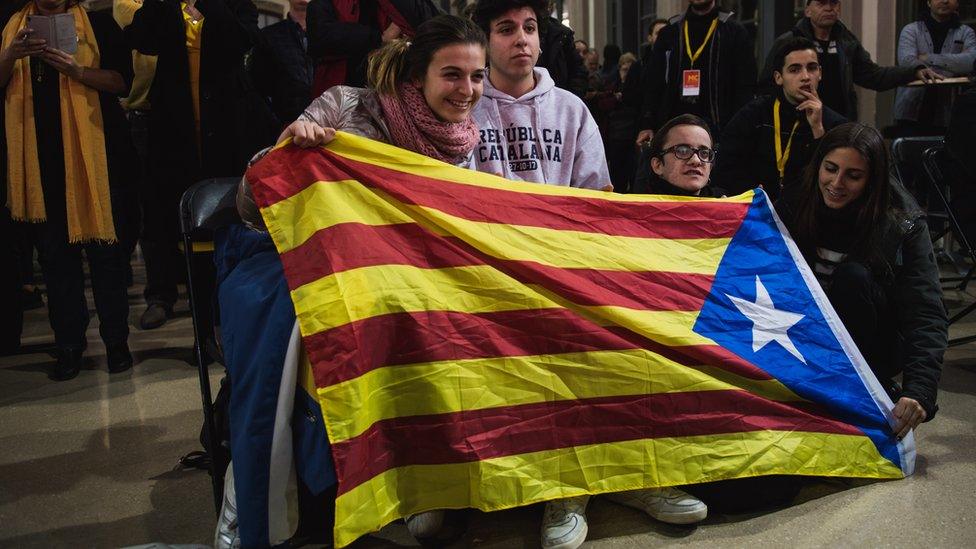Catalonia independence: Huge Barcelona pro-Spain rally
- Published
Barcelona rally demonstrator: 'I feel forgotten by Catalan government'
Hundreds of thousands have attended a rally for Spanish unity in Barcelona after Catalonia was stripped of its autonomy for declaring independence.
Many urged the jailing of sacked Catalan leader Carles Puigdemont.
Mr Puigdemont was dismissed as Spain's central government took control of Catalan institutions.
Spain's foreign minister has said that he could run for re-election in December - if he has not been imprisoned by then.
Alfonso Dastis's comments come as Spain's chief prosecutor prepares to file criminal charges against the pro-independence leader, who has said he does not recognise the order from Madrid removing him from power.
Meanwhile, in an open letter, Interior Minister Juan Ignacio Zoido has urged the Catalan regional police force to accept temporary direction from Madrid.
Spain has been gripped by a constitutional crisis since a referendum, organised by Mr Puigdemont's separatist government, was held earlier this month in defiance of a ruling by the Constitutional Court which had declared it illegal.
The Catalan government said that of the 43% of potential voters who took part, 90% were in favour of independence.
Police said at least 300,000 people had turned out in Barcelona, Catalonia's largest city, for the pro-unity rally. Organisers and the government in Madrid put the turnout at more than a million people.
'I am Catalan too'
Veteran Catalan politician Josep Borrell, a former president of the European Parliament, told demonstrators: "Mr Puigdemont may speak on behalf of some of the Catalan people, but I am also Catalan, I am also part of the Catalan people, and I do not recognise his right to speak in my name."
Among the demonstrators was Marina Fernandez, a 19-year-old student, who said she was unhappy with the actions taken by the Catalan authorities.
"I am enraged about what they are doing to the country that my grandparents built," she told the AFP news agency.
Another protester, Maria Lopez, told Reuters news agency: "What do we want? That they don't break us up. They are shameless, shameless, and Mr Puigdemont needs to be taken to prison."
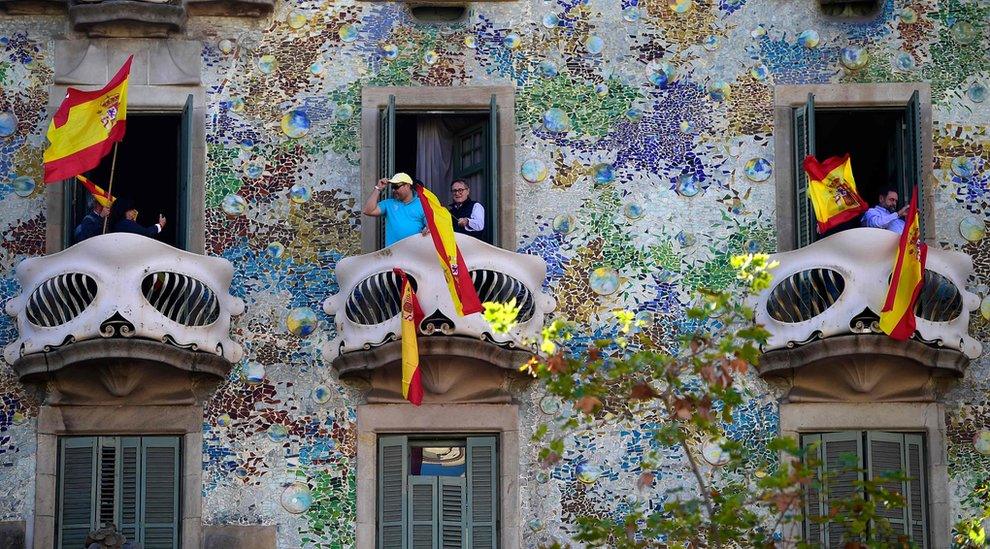
Pro-Spain protesters gathered at the Gaudi-designed Casa Batllo in Barcelona
The deputy president of the deposed Catalan government, Oriol Junqueras, has condemned Madrid's actions.
"The president of the country is and will remain Carles Puigdemont," he wrote in Catalan newspaper El Punt Avui.
"We cannot recognise the coup d'etat against Catalonia, nor any of the anti-democratic decisions that the PP [Spain's ruling Popular Party] is adopting by remote control from Madrid."

'Silenced majority'
By Gavin Lee, BBC News, Barcelona
Many of them waved Spanish flags and chanted "Viva Espana" and "The streets are for everyone" as they marched through Barcelona in support of Spanish unity and against Catalonia's unilateral declaration of independence.
Catalonia's main opposition party said the region's "silenced majority" was now speaking.
The atmosphere was peaceful, as police helicopters monitored from above.
Several off-duty police officers who had joined the protest told the BBC they felt there was deep division in their ranks, and were worried what could come next if their separatist colleagues refused to take orders from Madrid.
The key issue is what happens to Carles Puigdemont, who is still calling himself the Catalan president - despite having been removed from office by the Spanish government, along with his cabinet and more than 100 officials.
His job, in all but title, has been transferred to Spain's deputy prime minister until elections in December.
Independence supporters are being urged to resist any attempt by Madrid to forcefully remove the separatist leaders.

Friday saw the regional parliament declare independence, with Madrid responding by declaring the move illegal.
Prime Minister Mariano Rajoy then announced the dissolution of the regional parliament and the removal of Mr Puigdemont as Catalan leader, and ordered that fresh elections should be held on 21 December.
Mr Puigdemont has urged "democratic opposition" to direct rule from Madrid, which has said it would welcome his participation in the election.
Flags in Catalonia and what they mean
On Sunday, Belgium's Migration Minister Theo Francken told local TV the separatist leader could be given asylum protection which Spain would find difficult to reverse.
"If you see the situation at the moment, the prison sentences and the repression from Madrid and the prison sentences that are bandied about... the question is obviously whether somebody like that has the chance of a fair trial," he told Reuters.
There is no suggestion that Mr Puigdemont is seeking to leave Catalonia.
He had been expected to attend a football match in Girona, the heartland of the pro-independence movement, which saw the local team beat Real Madrid - who Mr Rajoy supports - by 2-1. But he apparently did not make an appearance.
A poll published by Spanish national newspaper El Pais on Saturday suggested a small majority of Catalans (52% to 43%) were in favour of the dissolution of the regional parliament and the holding of elections.
Fifty-five per cent of Catalan respondents opposed the declaration of independence, with 41% in favour.
Before Madrid took over the Catalan government, the region had one of the greatest levels of self-government in Spain.
It has its own parliament, police force and public broadcaster, as well as a government and president, though those have now been dismissed.
Catalans had a range of powers in many policy areas, external from culture and environment to communications, transportation, commerce and public safety.
- Published28 October 2017
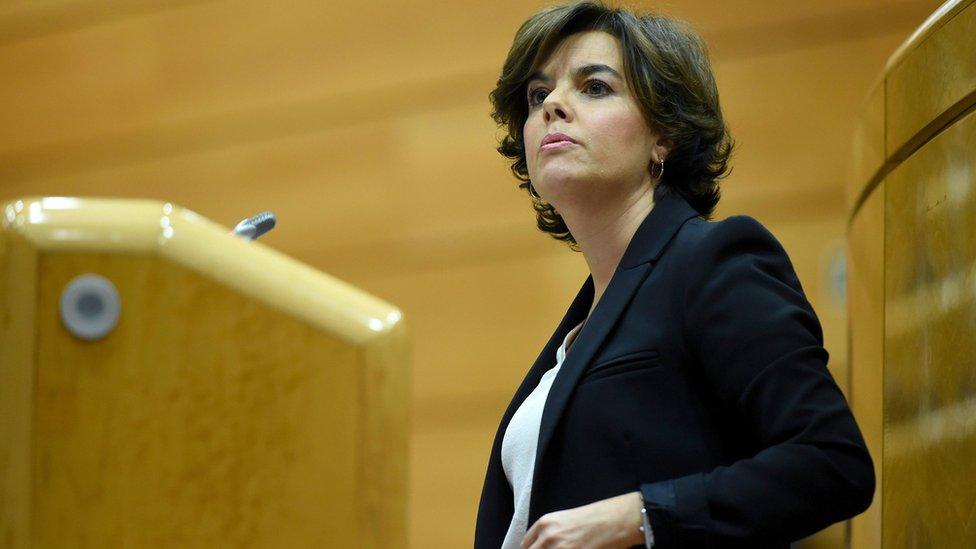
- Published2 November 2017
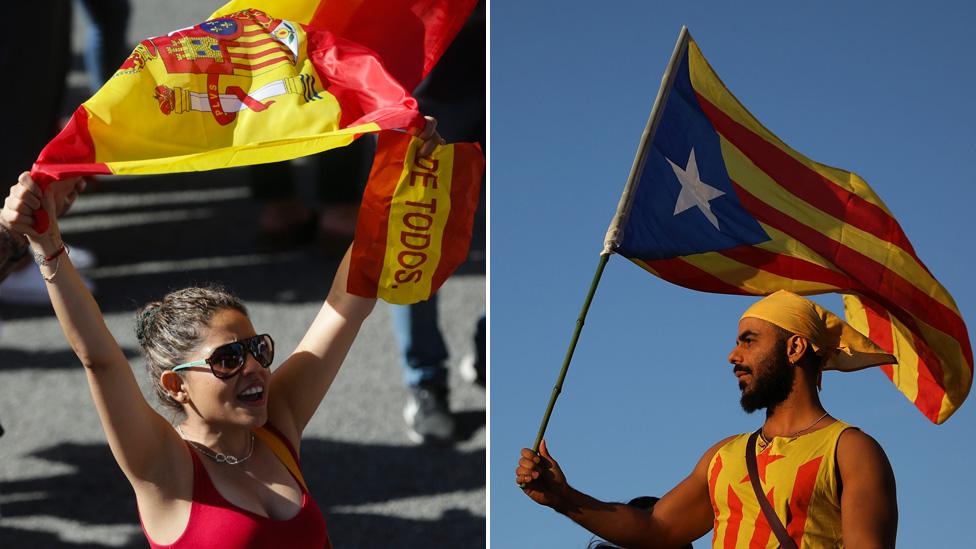
- Published27 October 2017
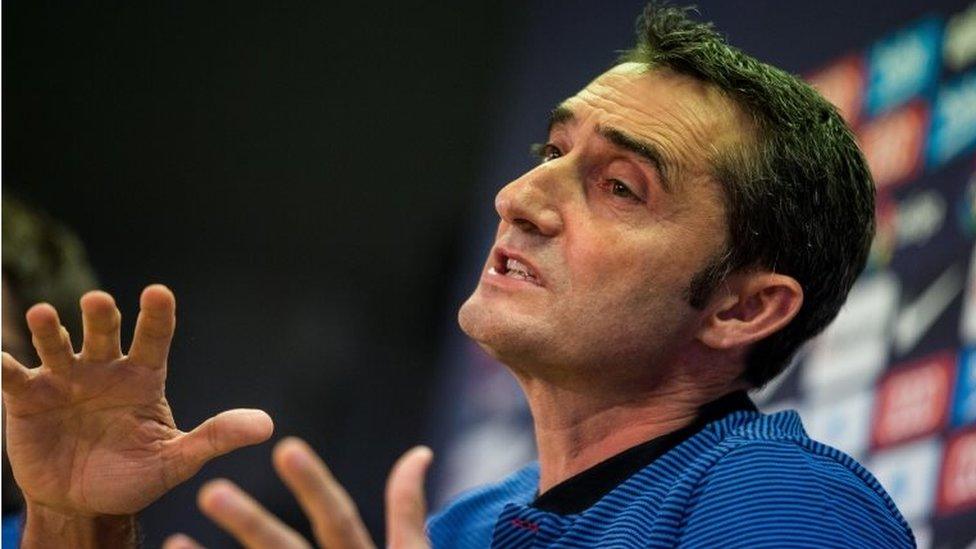
- Published27 October 2017
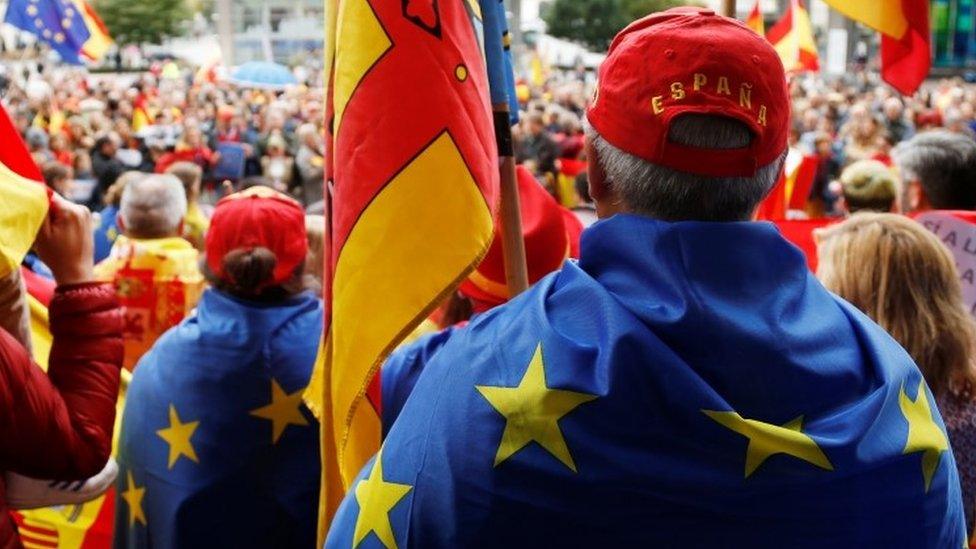
- Published27 October 2017
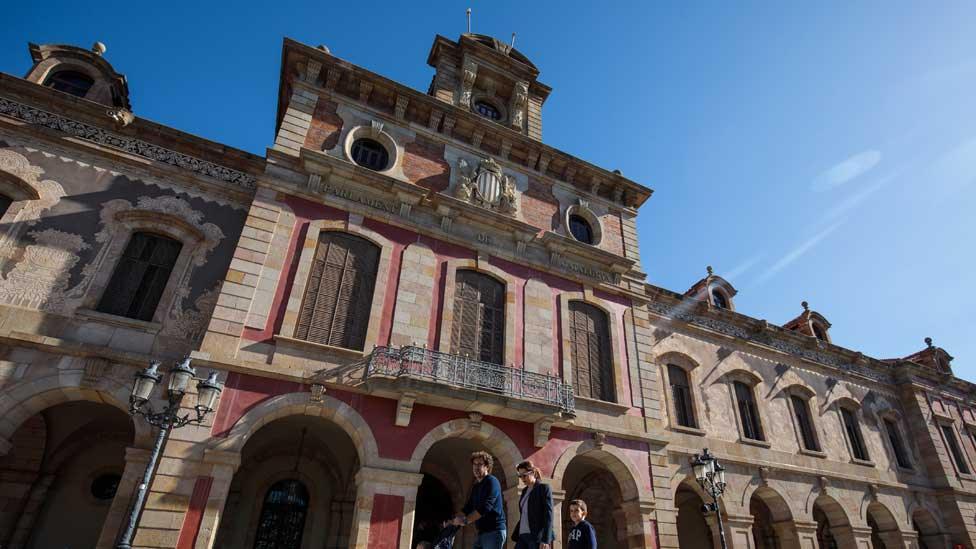
- Published14 October 2019
